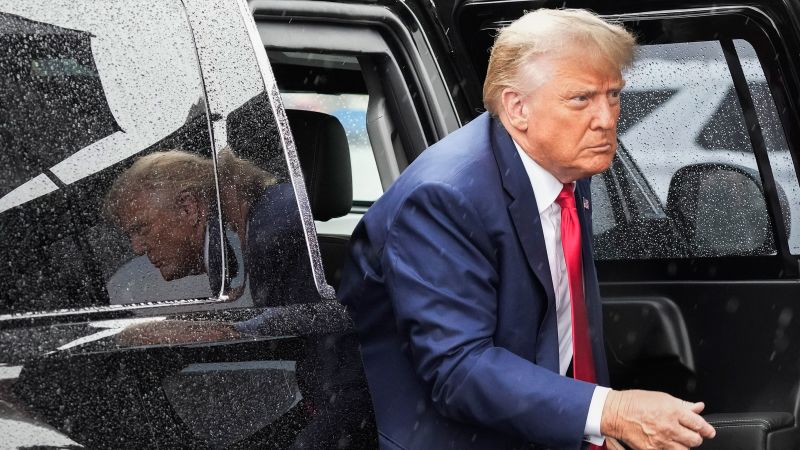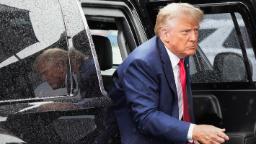

CNN
—
US District Judge Tanya Chutkan scheduled a hearing for Friday at 10 a.m. ET on the scope of a protective order – the rules imposed for the handling of evidence – in the special counsel’s election subversion case against former President Donald Trump.
This would be the first hearing before Chutkan, a judge who has already come under criticism from Trump supporters and received increased security.
Her move to schedule it for Friday morning comes after Trump’s attorneys – pointing to his busy legal calendar, which includes a Thursday court hearing in Florida in the separate classified documents case – had asked for the elections case hearing in Washington, DC, to be scheduled early next week. The Trump side had said that they had “lost” Friday as an option, but it’s unclear from the filing what they meant by that.
Chuktan previously indicated she would like to hold the hearing on the evidence rules by Friday. Special counsel Jack Smith’s team said they were available at any time Wednesday, Thursday or Friday.
Trump is not required to be present at the Friday hearing in DC, Chutkan said.
Prosecutors in a criminal case can seek a protective order from a court to prevent defendants from speaking publicly about sensitive and confidential information produced during discovery in the case.
The government usually asks for such orders to ensure other individuals involved in a case – like witnesses – won’t be potentially subjected to undue pressure by defendants in a case. Such orders also often hew to federal rules that limit what can be made public from a grand jury proceeding and under what circumstances that information can be disclosed. Requests for the orders are routine, and judges typically issue them in both criminal and civil cases.
Unlike protective orders, which tend to be narrow in scope, a gag order prevents a defendant from talking publicly about a pending case. These orders are seen more often in high-profile cases but are still less common than protective orders due to the constitutional concerns surrounding them.
Trump’s lawyers detailed in a separate filing Tuesday some of their extensive plans to prepare for trial.
In the new two-page court filing, the former president’s team asked for a lengthier time period before trial in the case.
The Justice Department currently has a 70-day clock until a trial, but it’s typical for time to be added to cases, especially complex ones.
The Trump team’s court filing outlined what his side believes are some initial needs to lengthen the clock for now by about a month, and included examples of the amount of preparation they want to do, such as interviewing “hundreds” of witnesses and sorting through a large volume of evidence the Justice Department has collected for the case.
“This matter raises significant constitutional issues, and other novel questions of law and fact. We anticipate, among other things, reviewing terabytes of electronic information and hundreds of thousands of pages of hard copy documents; filing numerous critical motions; interviewing hundreds of witnesses; issuing dozens of Rule 17 subpoenas; retaining expert witnesses, etc.,” Trump’s lawyers wrote to the court.
This story has been updated with additional developments.
